Regardless of what religion you may practice or your beliefs regarding the spiritual world, you most likely have some passing knowledge of Moses freeing the Israelites from slavery and the devastating ten plagues of Egypt. In the Book of Exodus in the Bible, Yahweh inflicted ten horrific plagues upon Egypt to persuade Pharaoh Rameses II to release the Israelites from slavery (obviously that is the super abridged version). Whether or not you believe these plagues were inflicted by an all-powerful God, I believe it is incredibly important to look at exactly what might have caused the plagues from a judicious, scientific standpoint (even if the plagues themselves did not take place as described, inspiration was likely drawn from real-world events).
Scientist have actually begun to defend portions of the Book of Exodus, arguing that the plagues of Egypt probably did in fact occur. However, rather than accepting the notion that they were wrathful acts of a vengeful God, they have suggested that the plagues were likely caused by a combination of global climate change and a volcanic eruption. It would certainly be considered a perfect storm of shitty luck for the Egyptians, but these could absolutely account for what is believed to have taken place. And there is much existing evidence that may support the claim.
Archaeologist believe they have pinpointed the site where the plagues may have occurred, in an ancient city called Pi-Rameses on the Nile Delta. This was the capitol of Egypt during the reign of Rameses II, the time during which the plagues are recorded to have taken place. Evidence suggests that the city was abandoned roughly 3,000 years ago, to which many have attributed the plagues as the cause.
Geologists studying stalagmites in Egyptian caves have been able to accurately map ancient weather patterns by tracing radioactive elements in the rock. What is interesting is that they notice a very clear shift in the climate that seems to coincide perfectly with the later years of Rameses' reign.
"There was plenty of rain and his country flourished. However, this wet period only lasted a few decades. After Rameses' reign, the climate curve goes sharply downwards. There is a dry period which would certainly have had serious consequences." Professor Augusto Magini, a paleoclimatologist at Heidelberg University's Institute for Environmental Physics. Source
The climate has always naturally fluctuated throughout history, and a sharp decline in the climate curve would have had radical effects. The sudden dry weather likely dried up the Nile substantially, leaving it a slow-moving, muddy mess of a river. This would have perfectly set the stage for the first plague.
Water into Blood: Biologists believe the blood-red waters could have been the result of a massive buildup of toxic freshwater algae. Known commonly as Burgundy Blood Algae, Oscillatoria rubescens has been proven to have existed during the period in question.
"It multiplies massively in slow-moving warm waters with high levels of nutrition. And as it dies, it stains the water red." Dr Stephan Pflugmacher, a biologist at the Leibniz Institute for Water Ecology and Inland Fisheries in Berlin. Source
Today, these algae blooms are often called Red-Tides because of their tendency to turn the water a deep red color. To the people of ancient Egypt, the water would have certainly appeared to be filled with blood. These red tides still occur today, and many people around the world still fear them for their likeness to the ancient plague. But not only are these blooms a horrifying color, they are incredibly toxic to many species of plants and animals.
Frogs: This "plague" would have occurred as a direct result of the toxic algae. Extremely vulnerable, frogs would have been trying to leave the river en mass and coming ashore to escape the harmful algae. Like all amphibians, frogs are incredibly sensitive to environmental change, and would be one of the first organisms affected by the algal growth. Many frogs have special hormones that speed up their development in times of extreme stress; an event such as an algal bloom could be enough to trigger an extra speedy metamorphosis from frog to tadpole, resulting in an even greater swarm of frogs leaving the river.
Lice (Gnats and Fleas): With the absence of frogs (a crucial natural predator), pest insects would certainly have been on the rise. The slow waters of the Nile also served as quality spawning pools for insects that could tolerate the algae. With good nesting habitats and little stress from predators, many insects like gnats and mosquitoes would have thrived.
Flies: With the algal bloom, fish would have died in massive numbers and washed ashore. The frogs that escaped the water would have also probably succumbed to either the toxic algae or the intense desert sun. As the bodies of fish and frogs rotted away, we can imagine that massive swarms of flies infested the area. And like the lice plague, without predators such as frogs to keep them in check, it is likely that their numbers only grew as they feasted on the fetid flesh.
Diseased Livestock: This one should be a no brainer; as insect populations increased, the Egyptians could have seen an increase in diseases carried by these vectors. These insects and their diseases were likely the major cause for the spread of disease among the dying livestock. In addition to these insects, livestock were probably still drinking water obtained from the Nile, now tainted with the toxic algal growth. These two factors combined would have decimated the herds of Egyptian farmers.
Boils: And just as the insects were spreading the diseases to their livestock, they were likely infecting the Egyptians as well.
"We know insects often carry diseases like malaria, so the next step in the chain reaction is the outbreak of epidemics, causing the human population to fall ill." Professor Werner Kloas, a biologist at the Leibniz Institute. Source
The boils described in the bible could very well have been the major symptom of an insect-transmitted disease.
So far, the plagues are a really horrible chain of events stemming from a sudden climate change, and we still see events like this today (though perhaps not to the same horrifying extent). When toxic species, like algae, become prolific, sensitive species like amphibians are the first to be wiped out. When a predator is removed from an ecosystem, the prey species flourishes. And when insects are left uncontrolled, they can spread virulent diseases to an entire population. With the natural world so interconnected, even the smallest changes can spiral things out of control rapidly.
But what of the other plagues? Surely they can't be attributed to the change in climate? Well, scientists have reason to believe a volcanic eruption may be the culprit. 400 miles away, a volcanic island in the Mediterranean Sea, Thera, erupted. Still considered to be one of the largest eruptions in human history, Thera exploded violently 3,500 years ago, spewing billions of tons of volcanic ash. This profound event is though to be responsible for the seventh, eighth and ninth plagues of the Book of Exodus.
Thunderstorms of Hail and Fire: This one is a really cool explanation in my opinion. The storm of fire would be obvious given the massive eruption; ash would be raining down from the sky even from a volcano hundreds of miles away. But how the heck could there be hail? Nadine von Blohm, from the Institute for Atmospheric Physics in Germany, believes she has the answer to that. As the ash mixed with storm clouds high in the atmosphere, it would have caused weather anomalies creating higher precipitation and humidity; she believes this was the cause of dramatic hail storms along the Nile.
Locusts: You might not think of locusts being an effect of a volcanic eruption but there is a reasonable connection. As mentioned above, volcanic ash would be responsible to higher precipitation and higher humidity...conditions that are extremely beneficial to locusts. With the prime conditions laid down by the distant eruption, locust swarms would have had a devastating impact on the Egyptians' crops.
Darkness: Thick volcanic ash would easily have blocked out sunlight, casting a huge shadow over Egypt. The darkness is most likely tied to the eruption of the volcano; during excavations of Egyptian ruins, archaeologists have found pumice, a stone formed by the cooled lava of volcanoes...except there are no volcanoes in Egypt. Analyses of these rocks indicate that they actually came from the eruption of Thera, proving that the city was within the range of influence of the eruption.
Death of the First Born Son: An interesting theory behind this one can be attributed to both dramatic calamities, albeit in a semi-roundabout way. With the loss of their livestock to disease and crops to locusts, the Egyptian's food stores would have been running very low. Grains that had been stored were occasionally tainted with fungi, especially towards the bottom of the storage unit, which was generally older. Whether caused by locust droppings or damp conditions, the fungus was likely growing in their dwindling stores. The male first-borns would have been considered of the highest importance to the Egyptian families, and provided with the first pickings and most likely largest quantity of the tainted food. Essentially, they poisoned their own sons to death.
Are these explanations concrete accounts for what took place in Egypt thousands of years ago? No, but they are very reasonable theories that are derived from extensive evidence of events during that time. The fact that much of this evidence seems to correlate with events from the Bible is extremely compelling; while they may not provide a 100% accurate account of what is in the Book of Exodus, the evidence is enough to tell us that more of it may be true than many people once realized. These events in the Bible may be slightly embellished in some instances, but I would realistically conclude that most of it describes real events in fairly accurate detail.
I really like the outcome of this investigation for a few reasons. First, it challenges a wide-spread notion I think many people have: that science and religion are mutually exclusive (and pretty much at war with each other). But in this study, multiple disciplines of science (biology, archaeology, geology, atmospheric sciences, etc) have come together to provide support for a long held religious belief. The religious texts and empirical data combined give us a more complete picture of what took place thousands of years ago, more than could be gleaned by simply looking at one or the other. The religious/science explanations of the plagues also give us two unique views of what happened; the scientific evidence may exhibit exactly what happened and why, while the Bible gives us a glimpse into the human side of the calamities, and how the Egyptians reacted to what they believed were violent acts of an angry God.
Not everyone is in favor of trying to find a scientific explanation. Many people feel as though it challenges the long held belief that God was the driving force behind the plagues (to which I'd reassure them that there is no evidence an all powerful God wasn't behind them). Whatever you believe drove the plagues (God or laws of nature), the fact remains: that there is strong evidence they really occurred.
"I'm reluctant to come up with natural causes for all of the plagues. The problem with the naturalistic explanations, is that they lose the whole point. And the whole point was that you didn't come out of Egypt by natural causes, you came out by the hand of God." Dr Robert Miller, associate professor of the Old Testament, from the Catholic University of America. Source
While I understand and respect his opinion, I have to disagree with Dr. Miller on one point. I personally believe that we can learn a lot from the science of the ten plagues, and it is our duty to do so. With a sudden shift in climate, an environmental collapse resulted with profound impacts on the human populations. In today's world, global climate change is one of the most pressing issues we face. What can we learn from the "plagues" that might apply to the world today? How might our current population be affected by a similar chain of events stemming from climate change? And by studying how the volcanic eruption hundreds of miles away effected Egypt, we have a better understanding of what long-range effects we might see from another eruption or natural disaster. These plagues aren't just part of a story anymore, they are a part of history, and those who don't learn their own history are doomed to repeat it.
-----------------------------------------------------------------------------------------------------------------
Sources:
https://en.wikipedia.org/wiki/Plagues_of_Egypt
https://savannaclaudia.wordpress.com/2014/09/08/the-ice-bugs-and-abyss-of-exodus/
http://www.slate.com/articles/life/faithbased/2009/04/a_skeptics_guide_to_passover.html
http://channel.nationalgeographic.com/videos/science-behind-the-10-plagues/



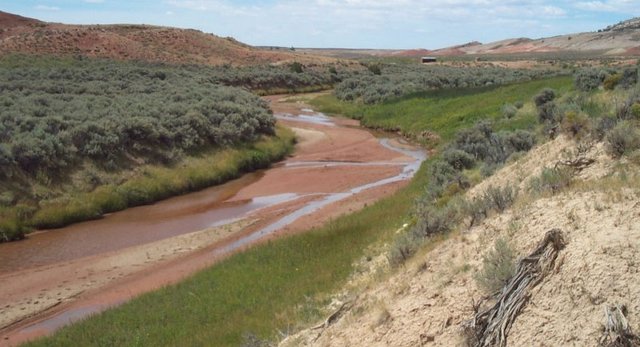

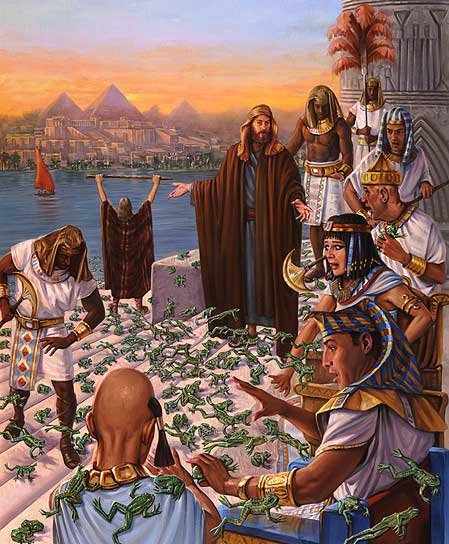






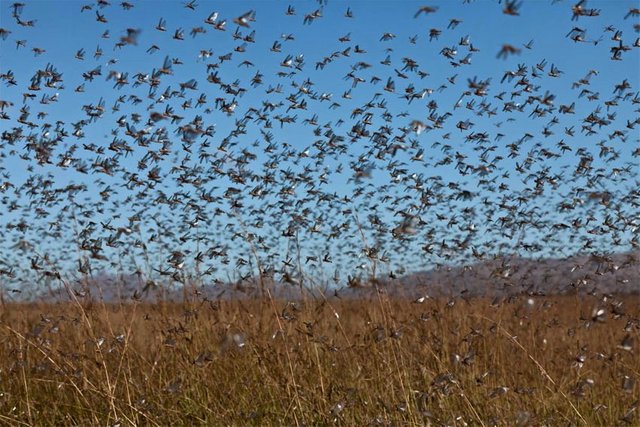
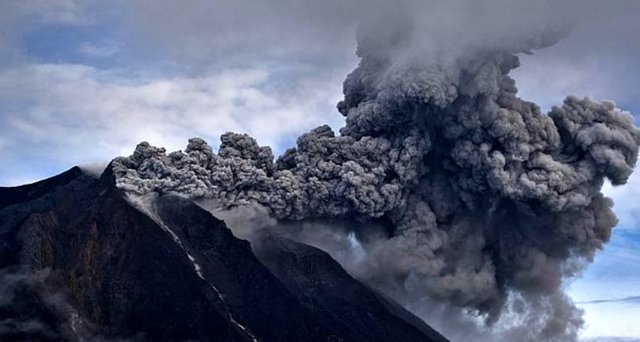
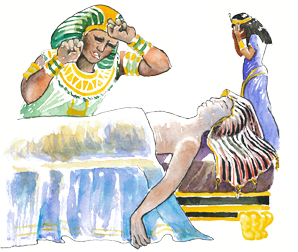

Hi, @herpetologyguy, Glad I stumbled across you today. :)
This is an interesting presentation, well-argued, though I am still mostly of a "supernaturalist" opinion about the plagues. My tendency is to use scripture as a yardstick for science rather than vice-versa. ;)
However, I think that anything that gets people to actually think about the realities of history, the historical value of scripture, and about who God is, has intrinsic value.
Upvoted, following, and looking forward to reading more of your work.
Downvoting a post can decrease pending rewards and make it less visible. Common reasons:
Submit
Thank you so much for the comment! I'm looking forward to seeing what responses I get from the steemit community and its different backgrounds and ideologies.
I absolutely agree with you. Much of this post was derived from debates from my religious studies course back in college (I was a biology major so I took it as an elective). It's not about one side being right or wrong, but about being able to analyze all aspects and realities of history that is the ultimate goal of those studies, and to be able to respect those ideas and opinions that are radically different from your own. Being able to compare science against religion or vice versa is often required to get the full scope of life. And sometimes the different interpretations of data and historical texts are really fascinating!
Thank you for the support! This is a tad outside my usual area of expertise so I am glad it was interesting!
Downvoting a post can decrease pending rewards and make it less visible. Common reasons:
Submit
This is a great post! Thank you for sharing! I have read something along these lines a couple years back. I am of the opinion that a supernatural force used science to accomplish His goals. Either way you look at it, it is nice to see that it can be proven that these things did in fact occur. :)
Downvoting a post can decrease pending rewards and make it less visible. Common reasons:
Submit
Thank you for the support. And I agree, science and religion are just two different aspects of analyzing the natural world and how it exists (Science is the "how does that work?" and religion is the "why does that happen?"). And it's really cool to investigate instances like this where they come together with supporting evidence.
Downvoting a post can decrease pending rewards and make it less visible. Common reasons:
Submit
I agree! I would definitely be interested in reading about any more that do the same thing!
Downvoting a post can decrease pending rewards and make it less visible. Common reasons:
Submit
This is a really cool post, and quite different from your usual reptile based series. Glad to see you branching out!
Downvoting a post can decrease pending rewards and make it less visible. Common reasons:
Submit
I had never read in details about the science behind the bible although some friends mentioned it at some point. I fully agree with and share your comment above, about the fact that scientists really focus on the 'how'. But at the end, a 'how' is a little bit a 'why' and vice versa, isn't it?
Downvoting a post can decrease pending rewards and make it less visible. Common reasons:
Submit
Oh absolutely. The comment I made was a very general oversight (it would just take so long to explain fully in a comment, ya know?). But the point in of this is that the ideologies and terms are not mutually exclusive, and there is a lot of blending between the different disciplines.
Downvoting a post can decrease pending rewards and make it less visible. Common reasons:
Submit
Great post. Well done research. As an Egyptian, I am of course biased, but I believe some of these things happened. Whether it is done by God or climate change or whatever natural reason, that is the same debate as did the universe was created by a God or just happened to happen.
What we know for sure is that Egypt used to be very greenish not a desert as it is now. Thanks for the great post!
Downvoting a post can decrease pending rewards and make it less visible. Common reasons:
Submit